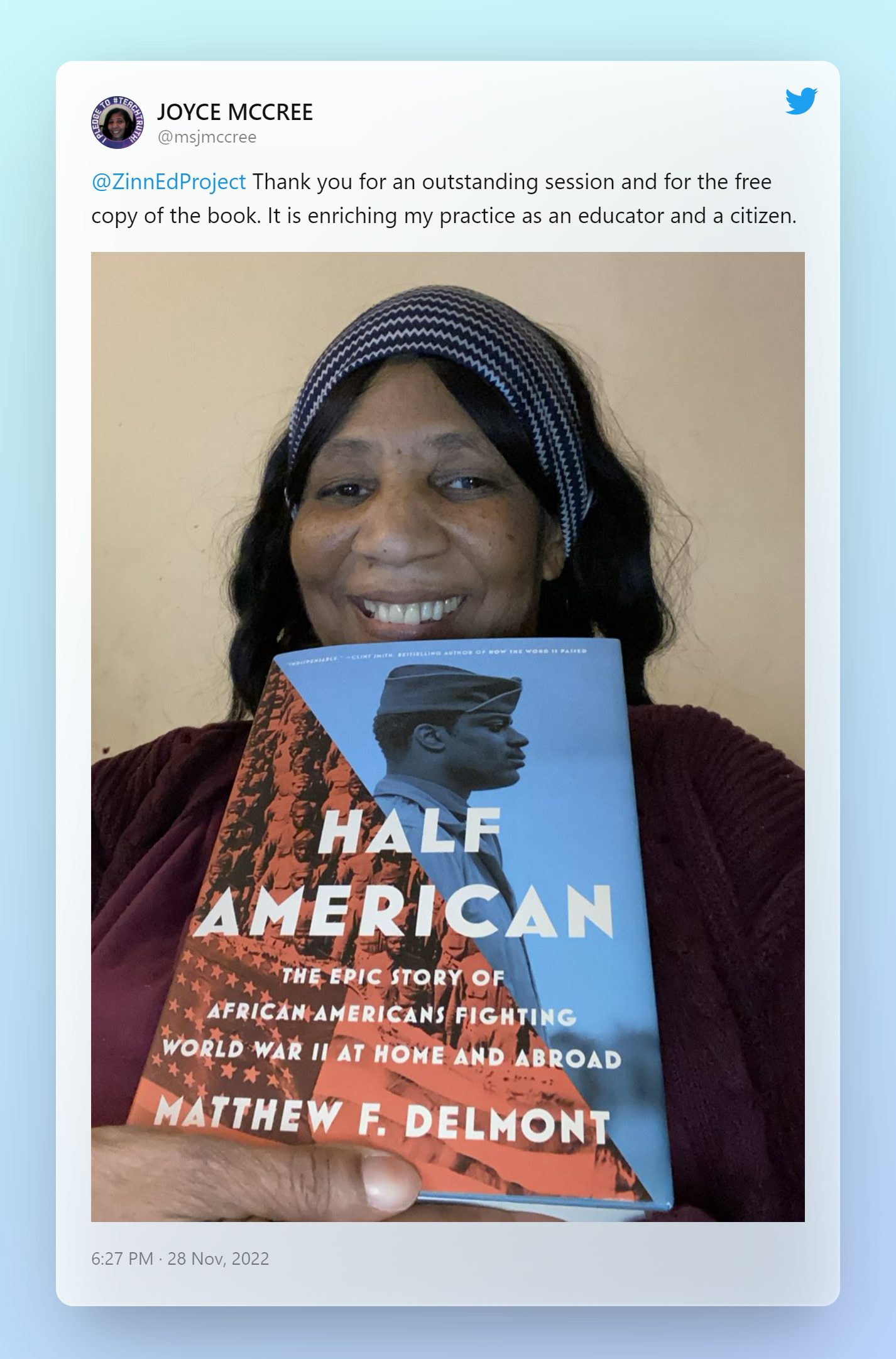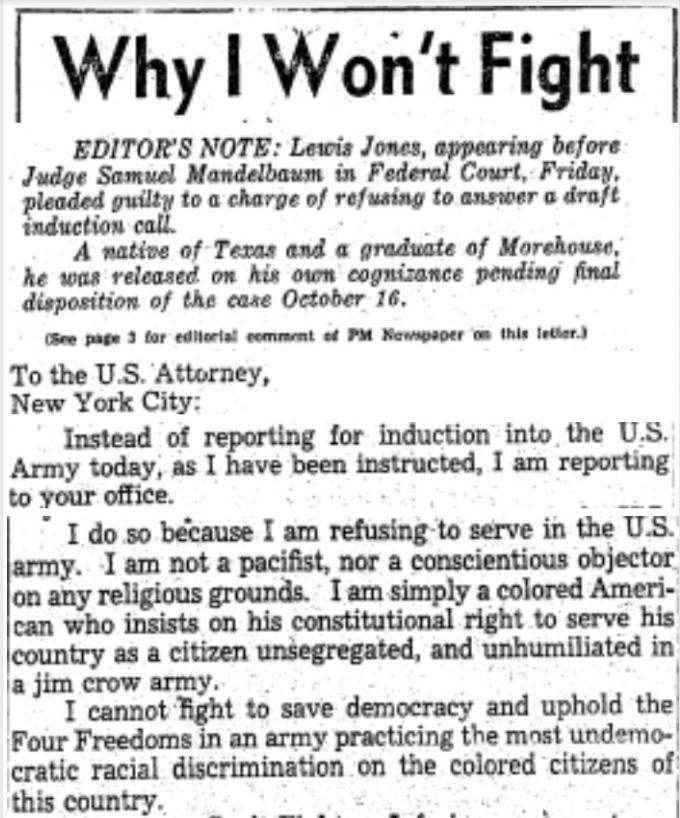In November, historian Matthew Delmont shared stories from his new book, Half American: The Epic Story of African Americans Fighting World War II at Home and Abroad. According to Delmont,
Nearly everything about the war — the start and end dates, geography, vital military roles, the home front, and international implications — looks different when viewed from the African American perspective.
Thanks to Delmont’s generosity, every teacher who attended the Teach the Black Freedom Struggle class received a copy of the book. Here are reflections from participants about what they learned and the session overall:

Rethinking the “Good War”
Two weeks after the online class, the Zinn Education Project (ZEP) hosted a curriculum workshop for Teaching for Black Lives study groups and guests based on Delmont’s book.
ZEP team member Ursula Wolfe-Rocca facilitated the workshop. She opened by asking participants to answer and discuss two questions:
What, if anything, do you recall learning about World War II in school?
What is the dominant story of WWII you encounter in popular culture?
Participants referenced the Holocaust, Pearl Harbor, relatives who served, and the “Good War.” One participant reflected on their schooling and shared,
What I learned did not align with the few stories my dad told us about his experience as a Black man fighting in the war. In fact, the pictures in my history textbook never had any faces that looked like my dad.
For the remainder of the workshop, educators participated in a series of breakout room conversations: What are the implications of the dominant narrative of WWII? What kind of interventions is Matt Delmont making into the history and memory of WWII? How might educators bring Delmont’s insights into the classroom?
For the final portion of the workshop, attendees read and analyzed primary resource documents, generously provided by Delmont, including the powerful protest on the right, published in the Baltimore Afro American.
Here are reflections from participants about the session.


